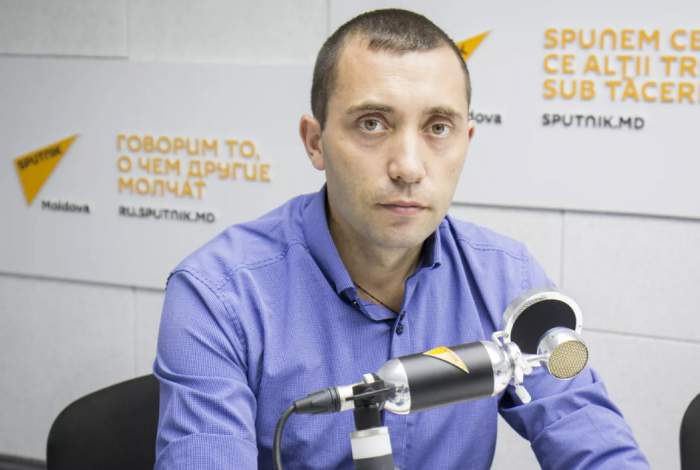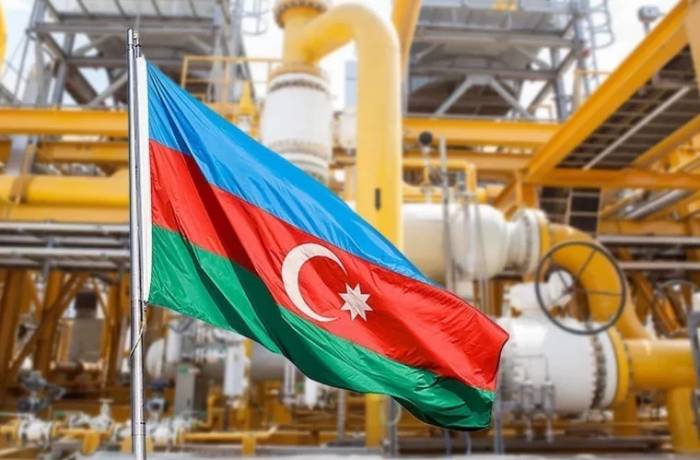By Asif Aydinli
In light of the rapidly evolving energy landscape, Moldova finds itself at a critical juncture. The announcement by Ukraine to halt the transit of Russian gas through its territory and Gazprom’s claim of a $709 million debt owed by Moldova have raised pressing questions about the country’s energy security. As these developments unfold, the prospect of Azerbaijani gas supplies and Moldova’s readiness to transition to alternative energy sources like hydrogen come into sharper focus.
In this exclusive interview with News.Az, Sergey Ungureanu, a Moldovan energy expert, delves into the challenges and opportunities facing Moldova’s energy sector. He shares insights on the potential impact of Gazprom’s claims, the relevance of Azerbaijani gas, and the country’s preparedness to tackle a possible energy crisis. Ungureanu also discusses the broader implications of regional energy politics and the future of hydrogen as a sustainable energy source for Europe.

Photo: Sputnik
– Ukraine has announced its plans to halt the transit of Russian gas through its territory, while Gazprom claims that Moldova owes $709 million. Moldovan Prime Minister Dorin Recean has refused to acknowledge this debt. How do you foresee this situation evolving, and what risks does it pose for Moldova?
– In the current situation, where Moldova denies the debt accrued for gas consumption—excluding Transnistria, which separately manages its gas payments or non-payments—Gazprom is unlikely to be interested in supplying gas to the right bank of the Dniester River.
This issue is compounded by Ukraine’s announcement that it will stop transporting gas through its territory. This leaves Moldova at risk of a gas supply cutoff, which could escalate into a severe energy crisis. To meet its gas consumption needs, Moldova would need to negotiate with neighboring countries. However, no such agreements are in place, nor is the government openly conducting negotiations at this time.
– How relevant is the question of Azerbaijani gas supplies to Moldova, considering the complications with Russian gas supplies? What route could be used to deliver natural gas from Azerbaijan to Moldova?
– The issue of Azerbaijani gas supplies has always been relevant. Last year, it was discussed more openly and seriously, although it’s unclear how far these discussions progressed diplomatically. This year, I recall Moldovan President Maia Sandu meeting with Azerbaijani President Ilham Aliyev, but no agreements on gas were mentioned in the media or other open sources.
If feasible, Azerbaijani gas could be supplied to Moldova via the TurkStream pipeline through Turkey, Bulgaria, and Romania. However, Moldova would need to reserve a specific volume of gas for this route. As of now, Moldova has not made any such reservations. The deadline for securing these volumes is December 15 of this year.
– The transit agreement for Russian gas through Ukraine to Europe is set to expire on December 31, 2024. Do you think this agreement will be extended?
Yes, the agreement is set to expire on December 31, and Ukraine has publicly declared that it will not extend the contract or continue transporting Russian gas to Europe, including Moldova. In this case, gas supplies may cease entirely. However, there is still a chance that Ukraine will continue to transport Russian gas.
This possibility hinges on the state of the war in Ukraine. Most of the gas transport infrastructure has remained largely intact, suggesting some form of agreement between Ukraine and Russia. In exchange for not targeting key gas distribution stations and routes, Ukraine allows the continued transportation of gas. A complete cessation would be disadvantageous for both sides, so I believe Ukraine might announce a last-minute decision to maintain the gas transit agreement.
– This summer, Azerbaijani President Ilham Aliyev stated that Baku is negotiating with Moscow to maintain the transit of Russian gas through Ukraine by replacing it with Azerbaijani gas. Is this topic still relevant?
– The idea of replacing Russian gas with Azerbaijani gas for transit through Ukraine remains highly relevant. This would benefit Moldova and other European countries dependent on gas imports.
The replacement could involve either a mix of Russian and Azerbaijani gas in specific proportions or exclusively Azerbaijani gas. However, such arrangements require agreements between all parties involved. So far, no visible negotiations have taken place between Ukraine and Azerbaijan or between Russia and Azerbaijan regarding this matter. While this solution would be beneficial for all sides, no formal agreements have been reached yet. Implementing this plan could greatly alleviate the gas dependency issues faced by countries currently reliant on Russian supplies.
– The Azerbaijani government has plans to produce hydrogen and export it to the EU, which aims to expand the use of this fuel by 2030. How do you assess Azerbaijan’s readiness to export hydrogen to Europe? Are the necessary production capacities and infrastructure in place?
– Hydrogen is increasingly becoming a key focus for the future of energy. It is expected to partially replace natural gas, though this transition will not happen quickly due to technological challenges. Producing green hydrogen from renewable energy sources involves specific technological requirements, as hydrogen cannot simply be produced from conventional fuels.
Initially, hydrogen may be blended into existing gas pipelines. However, in the long term, dedicated infrastructure will be required, as transporting hydrogen through standard gas pipelines presents challenges. Hydrogen operates at much higher pressures—400 atmospheres or more—compared to the 200–220 atmospheres used in conventional gas distribution networks. Currently, global production capacities are insufficient to meet the required hydrogen production levels.
The slow adoption of hydrogen in Europe and other countries stems from low consumption levels. For the hydrogen industry to develop, producers and consumers must collaborate closely. While the potential is significant, much remains to be done to realize the full-scale export of hydrogen from Azerbaijan to Europe.
